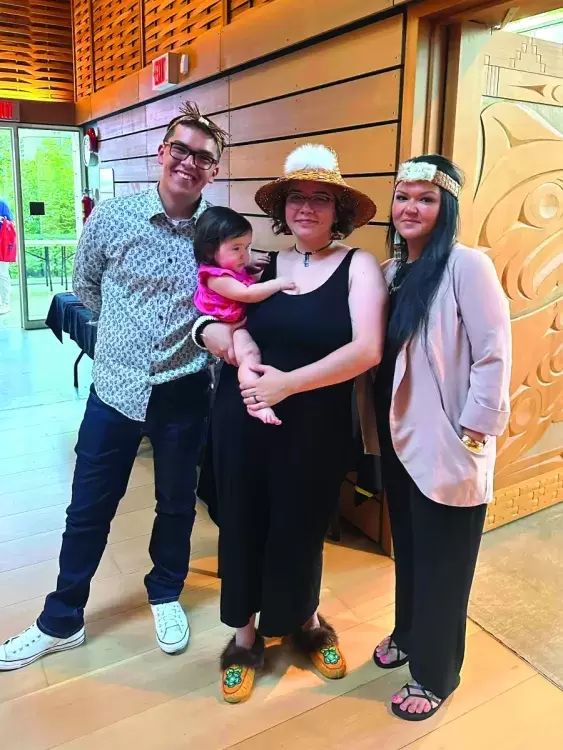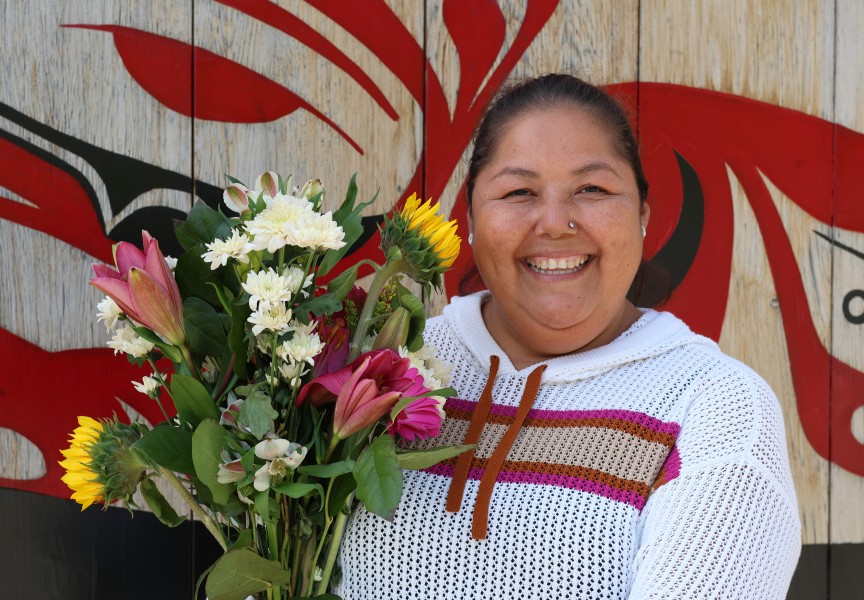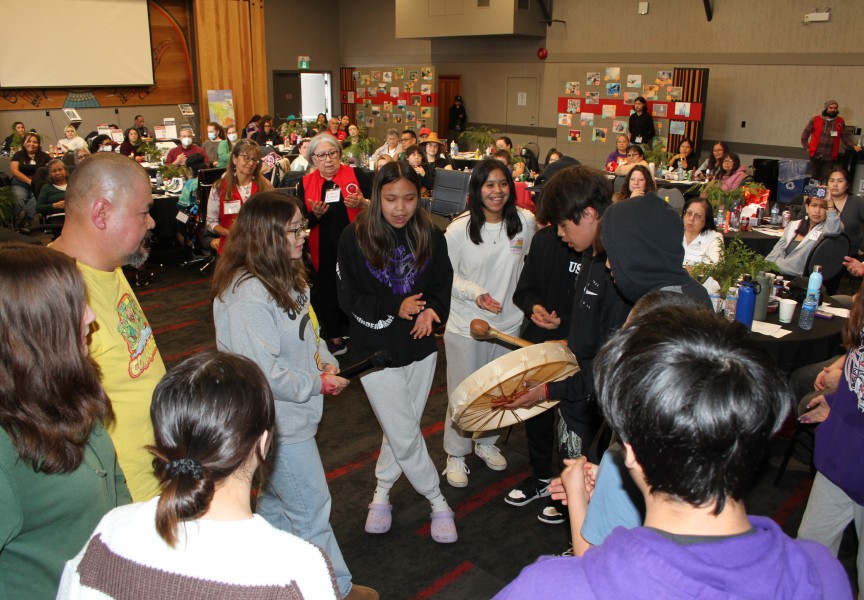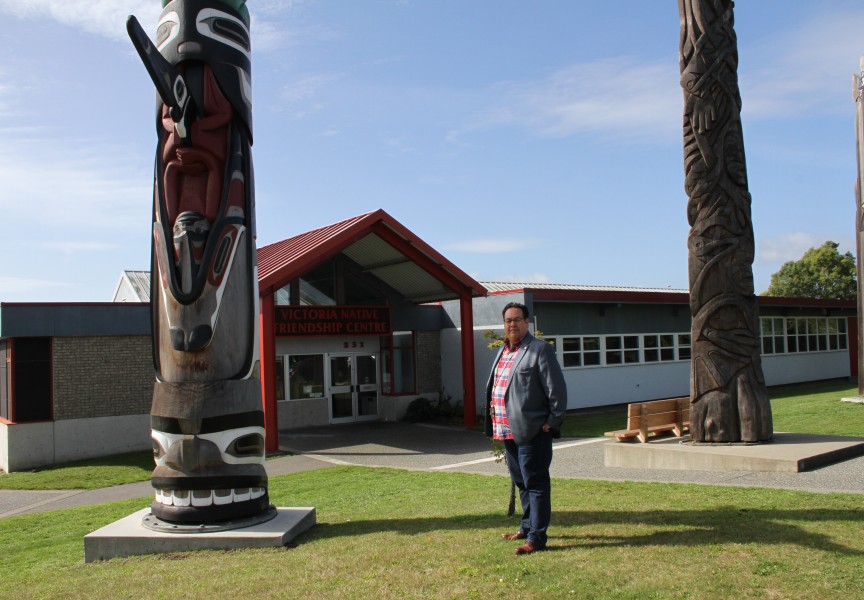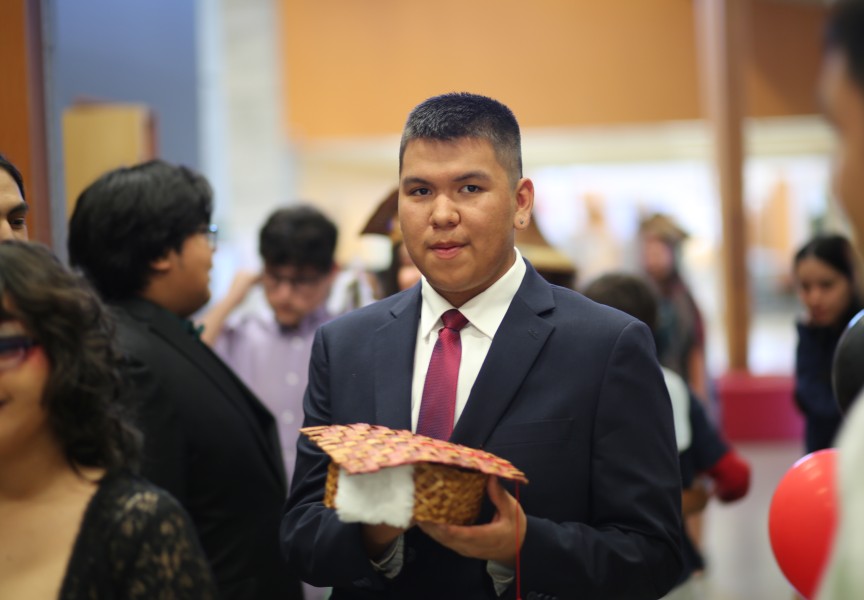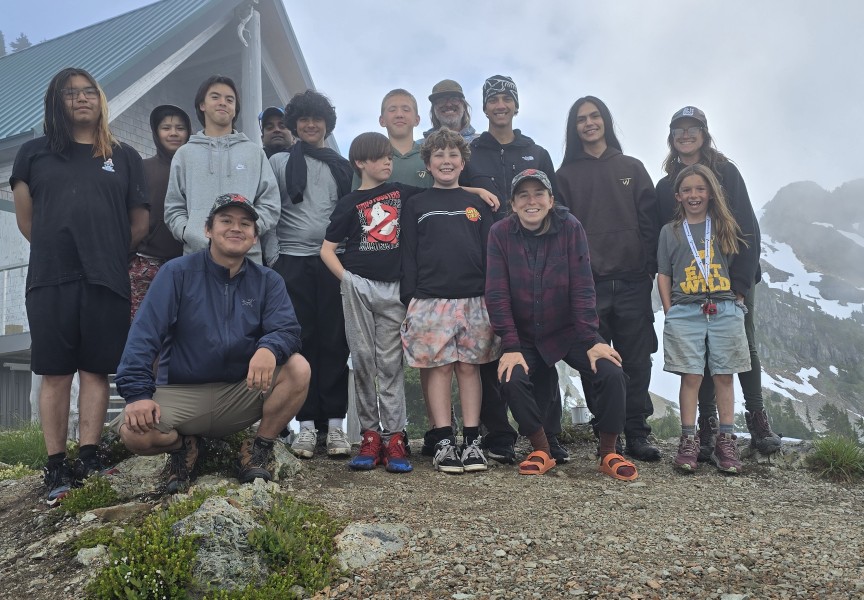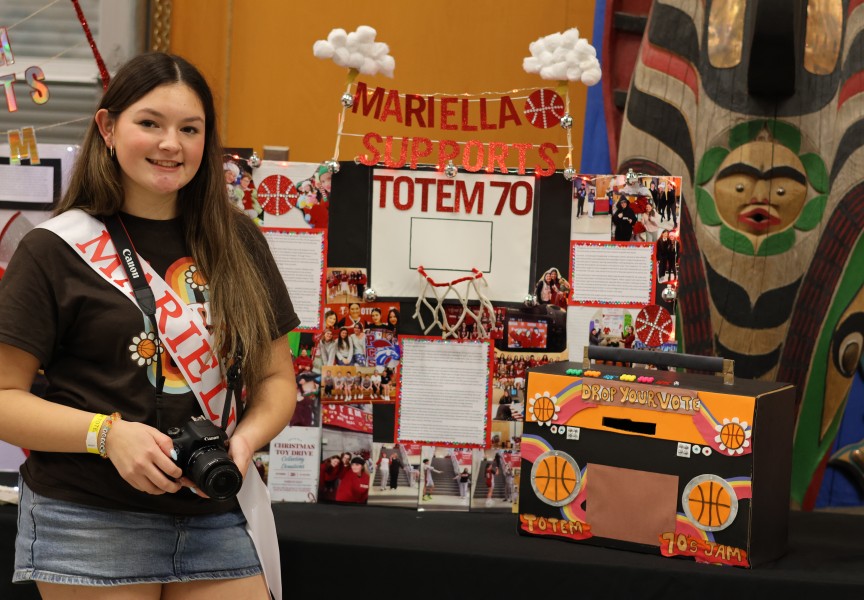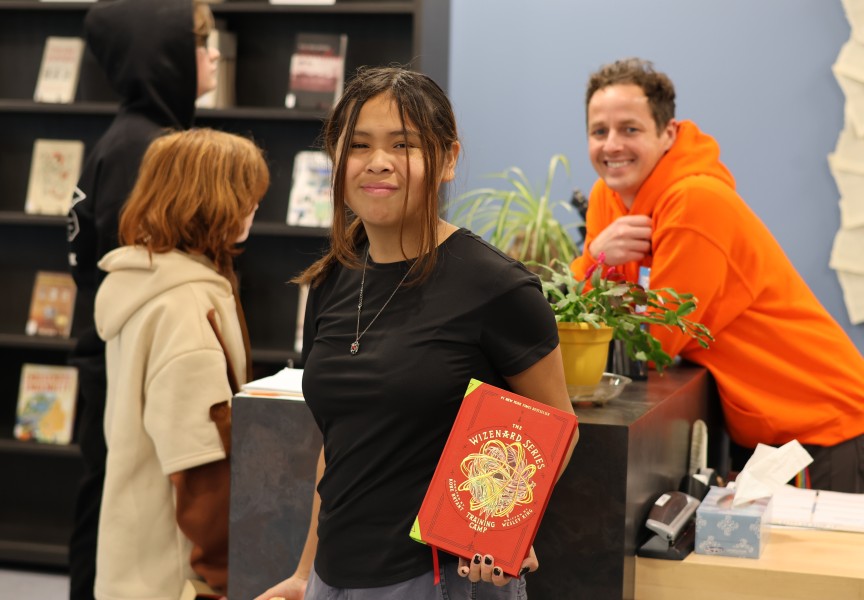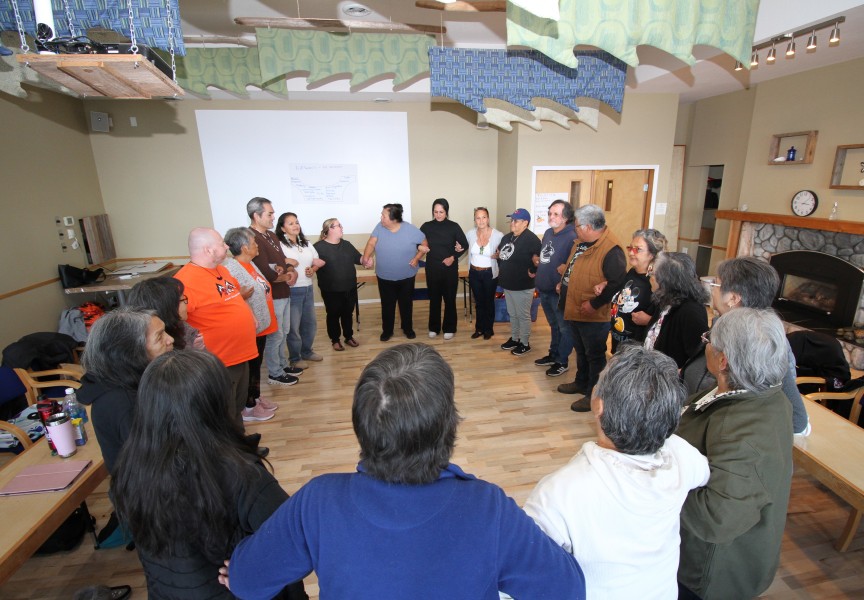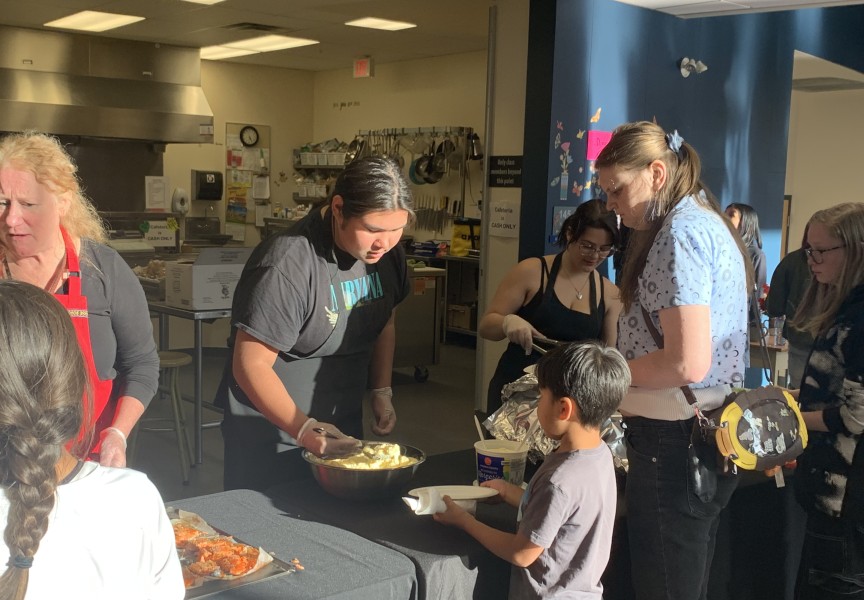A group of five Nuu-chah-nulth-aht have earned the first ever Bachelor of Education degree specializing in Indigenous Language Revitalization, offered by the University of Victoria. The community-based Bachelor of Education in Indigenous Language Revitalization (BEDILR) seeks to support communities to retain their language, through educational programming.
The five graduates, Linsey Haggard of Tseshaht, Tim Masso of Tla-o-qui-aht, Chrissie John of ʔiiḥatis, Jeneva Touchie of Yuułuʔiłʔatḥ and Beverly Martin of Tla-o-qui-aht received their diplomas in a ceremony at UVic’ First People’s House in June 2023.
“This was the first accredited degree program for Nuu-chah-nulth language,” said Chrissie John, adding that they studied for five years in the pilot project uniquely designed to train them to teach Nuu-chah-nulth language in the classroom.
For Victoria Wells of the Quuquustsa Language Society, the whole process took six years. “(it) was a passion project for everyone involved along the way,” she told Ha-Shilth-Sa in an email.
To make the project a success, many Nuu-chah-nulth agencies, nations and fluent speakers collaborated over those years. Participation came from advocates and education managers from Ka:'yu:'k't'h'/Che:k'tles7et'h', Nuchatlaht, Ehattesaht, Mowachaht/Muchalaht, Tla-o-qui-aht, the Quuquustsa Language Society, the Nuu-chah-nulth Tribal Council as well as the Indigenous education departments at UVic and North Island College.
According to Aliki Marinakis, UVic’s Indigenous Language Program manager, there were a total of 13 graduates from the pilot program. Other graduates came from Campbell River, Chase and Victoria. All are now certified to teach any subject in schools with students enrolled from kindergarten to Grade 12.
Marinakis stated that the BEDILR program was in development at UVic for more than a decade. It’s designed to support the language revitalization work being undertaken across B.C. and Canada.
“Unfortunately, the resources weren’t there, the school didn’t have a language teacher,” Masso remembers.
What would have been the language block in the schedule became a support period to allow students to catch up with work in other classes. The young Masso, who had been taking language classes offered at Yuułuʔiłʔatḥ First Nation, approached the supervising teacher with a unique offer. He asked if he could teach language during that block.
“It was very simple lessons, Nuu-chah-nulth alphabet at first,” said the student-turned-teacher.
But it lit his desire to both learn and teach the language. Masso was 15 when he started the BEDILR program.
The five Nuu-chah-nulth graduates made a choice in the second year at UVic to focus on language teaching while completing the four-year Bachelor of Education program, making them certified school teachers with the ability to teach Nuu-chah-nulth language.
“It was like every student did a double major: studying their respective languages while studying in a Western system how to be effective educators,” said Wells.
For the Nuu-chah-nulth portion of the degree, students were sometimes paired with fluent speakers, working in the communities to pass the language on. During the pandemic most took their language lessons remotely, connecting with their fluent Nuu-chah-nulth-speaking elder over the internet.
Masso said he relies on a few fluent speakers to teach him.
“There were so many fluent elders five years ago…in that time Tla-o-qui-aht lost maybe four speakers,” he noted.
Masso estimates that there may be 30 or 40 fluent Nuu-chah-nulth speakers left.
“But there are a lot of silent speakers (people that understand the language but don’t speak it) and partially fluent speakers – and there’s so many new language learners, the number has grown significantly in the past five years,” said Masso.
He went on say that he’s not sure where he will be in September, but his degree and teaching certificate will open doors for him. He could sub-teach in Tofino and Ucluelet’s three regional schools, Wickaninnish Community School, Ucluelet Elementary School and Ucluelet Secondary School.
“I did my final practicum at Wickaninnish Community School and rather than teach language as a class, I taught the curriculum with a Nuu-chah-nulth focus,” said Masso, adding that so many kids are willing to learn.
An added benefit to the Indigenous language and culture programs in schools is that Aboriginal children are more comfortable at school because they are being reflected there, Masso noted.
According to the provincial government, a First Nations Language Teaching Certificate is required to work in B.C. schools as an Indigenous language and culture teacher.
For independent schools, like those on reserve in Nuu-chah-nulth territories, a Letter of Permission to teach Indigenous language and culture is required. A Letter of Permission is a special permit that allows someone to teach without a certificate in a particular school district, independent school authority or for a First Nations council for up to one school year. It is only to be used when a certified teacher is not available to fill a vacant position.
A recognized First Nations language authority is required to approve a First Nations Language Teacher Certificate that can be recognized by the BC Teachers’ Council.
While the cohorts spent five years working on their degrees, Marinakis notes that they completed a four-year Bachelor of Education program with first year Nuu-chah-nulth language courses, placing them at category four on the pay scale according to the Teacher Qualification Service.
While the BEDILR graduates argue that their certification amounts to a specialty skill that should raise their pay category, they are being told that they need to do more work to level up. According to Marinakis, the BEDILR degrees are buildable, meaning that they can go back to university and take the required number of third- or fourth-year courses to upgrade their pay category. They can upgrade to level six if they earn a master’s degree.
Currently, there are no third- or fourth-year Nuu-chah-nulth language courses available at UVic.
Marinakis is proud of the first graduating class of UVic’s BEDILR.
“They are so talented, so brilliant, very important knowledge holders for the community,” she told Ha-Shilth-Sa.
In March 2023, Chrissie John stated that she was grateful to her mentors for the gift of language they gave her on her education journey.
“There are very few fluent Nuu-chah-nulth speakers,” she noted, adding that she will pay it forward.
Masso credits Richard Mundy of Yuułuʔiłʔatḥ and Tommy Curley of Tla-o-qui-aht for teaching him Nuu-chah-nulth language. He hopes that he can help local schools develop language programs, not only for the students, but also for the teachers.
“There is a huge lack of (Indigenous) language in schools and it’s definitely needed,” he noted, reflecting on how things were when he was 15. “The school has changed. Back then, the idea of teaching Nuu-chah-nulth language was a far away idea, but now both students and teachers want language.”
“I want to keep learning (Nuu-chah-nulth language) and it will probably be for the rest of my life,” said ḥakaƛ (Chrissie John).
“All the graduates are incredibly dedicated and devoted to living and teaching Nuu-chah-nulth language, and I cannot wait to see what they do next,” said Wells.

